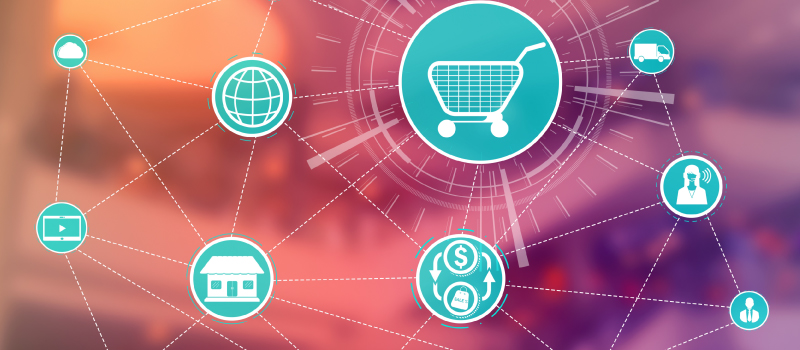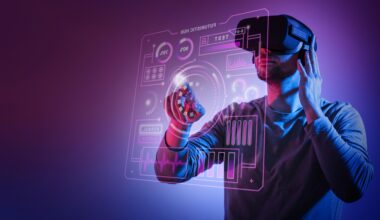It’s difficult not to feel a sense of awe at the ingenuity of some of the applications of AI in various industries.
Retail in particular is one of the industries where the successful implementations of AI are constantly rising. Look at H & M’s assortment planning using AI.
Forecasting fashion trends is not easy; however, AI helps the brand to predict fashion trends, plan for a new season and cautiously decide on what trends it would like to showcase to the customers by using algorithms that can analyze the product assortment of competing brands, demographics and shopping history of customers.
By harnessing the capabilities of AI, H & M is breaking the stereotype with a one-size-fits-all merchandising approach. The obvious benefits are inventory localization, reduced product cycles, and an improved supply chain.
AI has enabled Facebook to identify faces in images and tag users, allowed Siri to recognize your voice and act accordingly, and empowered Tesla to develop self-driving cars. Many other companies like Mcdonald’s, Hitachi, Mango, Nestle, Walmart, etc are now investing heavily in AI and intelligent automation to pursue sustainability and meet customer expectations.
Not just companies, we all have at some point interacted with the technologies that fall under the broad umbrella of artificial intelligence (AI).
According to McKinsey, the three areas of greatest opportunity for AI in retail in the short to medium term are promotions, assortment, and replenishment. Retailers now aim to anticipate customer orders, and ship goods without waiting for purchase confirmation.
With the penetration of AI in retail, the most pressing questions for retailers are, Can AI help traditional retailers catch up, or will it further widen the gap between digital players and historical brands that are lagging behind? Success mainly hinges on how they onboard and secure access to the vital data while redefining the customer experience.

Let’s Delve into The Top Benefits of AI in Retail:
Improved Customer Experience
- Semantic recognition technologies like chatbots are helping retailers to enable 24*7 customer service and reduce the volume of low-added value contacts.
- The voice recognition capabilities of AI can transform the customer’s voice command into order taking system that can help provide a notable experience
- The visual recognition system can help identify customers’ actions, analyze patterns and understand the buying intent which can bring impressive results.
- Biometric and object recognition POS systems can enable a seamless customer experience.
- Robots can help customers find the products they need, identify the buying patterns, and discover what goods are moving faster and in what seasons or days of the week.
- Predictive analytic techniques can help forecast future customer behaviors, reduce the churn rate and detect risk situations.
- Enhanced cx can reduce the product fit uncertainty and reduce the returns.
- Personalized, immediate, and pitch-perfect experience can elevate customer satisfaction manifolds.
Also Read:
Top Artificial Intelligence (AI) Development Companies in Bangalore
Why hurry? Do you believe that just doing research on Top Artificial Intelligence companies in Bangalore is enough? Of course, it’s “NO” from my side
Cost Savings
- AI-backed tools can process data about millions of customers with billions of journeys of sold products with minimal technical requirements, less time, and money.
- AI provides new possibilities to cut down the dependability on human staff. Example-Smart shelves can check the stock, summarize the data and report to the concerned staff.
- Sensors, automation, robotics, and other AI-powered technologies can help manage warehouses effortlessly.
- Stock replenishment is a highly sensitive decision that can impact profits. AI-based inventory optimization can help determine the optimum amount of inventory with high accuracy and lower costs.
Higher Revenue
- AI in sales reinforcement can alert the sales team when to invoice and recommend up-sell and cross-sell opportunities.
- The technology can help retailers consolidate the sales strategy using the store features.
- AI-enhanced data analytics can identify the different variables responsible for sales, profitability, customer churn, and much more to achieve price optimization objectives & manage performance.
- Autonomous robots can work alongside humans to drive productivity & reduce injuries.
- Optimized prices in real-time with AI can maximize revenues significantly.
AI clearly brings infinite opportunities for retailers to raise the quality of customer experience, save costs and drive revenue growth. To reap the benefits of AI in retail and witness attractive returns, retailers need to incorporate the technology into their value chains at scale.
When it comes to AI, the bigger, the bolder (McKinsey), as it tends to generate high returns when applied at scale. Encouraging the broader uptake of AI has room to run the retail revolution.
Are you a retail specialist looking to adopt AI in your organization? Have real insights and sustainable implementations of AI with Fusion. Connect now to get started!





